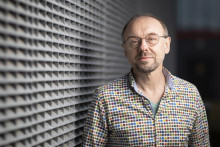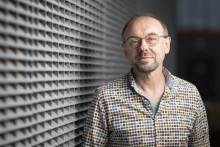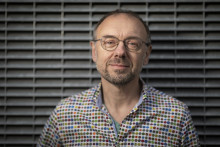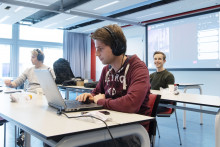We can await the moment when it becomes legally possible to demand a Covid pass (CP) in the workplace, because it will. And when this legal option is available, it is likely that the government will also introduce this measure for higher education. So, as a university, we would do well to determine our stance on this, or so I thought. But now it appears that a stance was already taken, as seen in the Covid update of November 4th. For your convenience, I reproduce the text in full:
The possible introduction of a COVID Certificate for higher education is being discussed at the national level. At the University of Twente, we are not in favour of requiring this certificate for regular access to education and research (…). In addition to practical objections, we believe that it imposes unnecessary restrictions. We stand for an inclusive university, in which there is a place for everyone.
In a recent survey, we found that the vast majority of the UT community is protected, either through vaccination or because they have already had COVID-19. This means that a COVID Certificate would only have a very limited added value to our ability to offer a safe work and study environment.
We are in consultation with other universities, the VSNU umbrella organisation and the national government about this issue, and we will submit our objections. We are not alone in objecting. It is currently difficult to predict whether the COVID Certificate will be introduced or not. When the central government decides that this will be the case, we will look at how we can implement it properly, taking into account the interests of our staff and students.
Little commotion
So our university is not in favour of the CP. In addition to the practical objections, there is the principal argument ‘We stand for an inclusive university, in which there is a place for everyone.’ I fully agree with that. Unfortunately, the stances of our university and those of other universities did not break through to the public debate. Maybe I missed it, but also within our own university, there is little commotion about this matter for now, for example within the University Council. And if it is up to the government, the university councils will be sidelined when it comes to this subject: You can debate all you want but to no consequence.
Such debate is important, given the seriousness and the complexity of the case. Do we let everyone enter our inclusive university, disregarding the status of vaccination or testing? In that case, employees and students from risk groups can feel unsafe and thus excluded. Or do we weigh the interests of risk groups so heavily that we create a barrier against the unvaccinated and untested?
Motives do not matter
Putting a big pressure on getting vaccinated is fine, including a CP for certain locations where it is pleasant to be, but not strictly necessary. I have little sympathy for motives against getting vaccinated. A lot of it is out of self-pity, a form of risk aversion which a lot of people do not impose on themselves for other things we do to our body, or a questionable appeal to the bible.
But the motives against vaccination are irrelevant in the discussion of the CP. The urge to get vaccinated has a fundamental limit for me when people are denied access to locations where they should be, which will happen with a 2G regime for employees of our university. I think a 3G regime is justifiable, but if you start with that, it is a small slope into the next stage that is 2G. The difference with coercion is then exclusively found in the semantics. Because for most unvaccinated people, the automatically imposed sanction of exclusion from work and education on-site follows. This step causes a split which will have effects on society, including the university, for a long time.
A more active role?
This plea comes very late, but hopefully not too late. Are we, as a university, just going to sit and wait to see what measures are imposed on us next? Or do we take a more active role? By including ourselves more clearly in the public debate, or by using our expertise to shape the approach we take in the future for our society with Covid. Our DesignLab played a prominent role in the development of the ‘CoronaMelder’ app, and could also mean a lot for researching and developing long-term scenarios for Covid. Why don’t we make our university a 1G testing ground?






